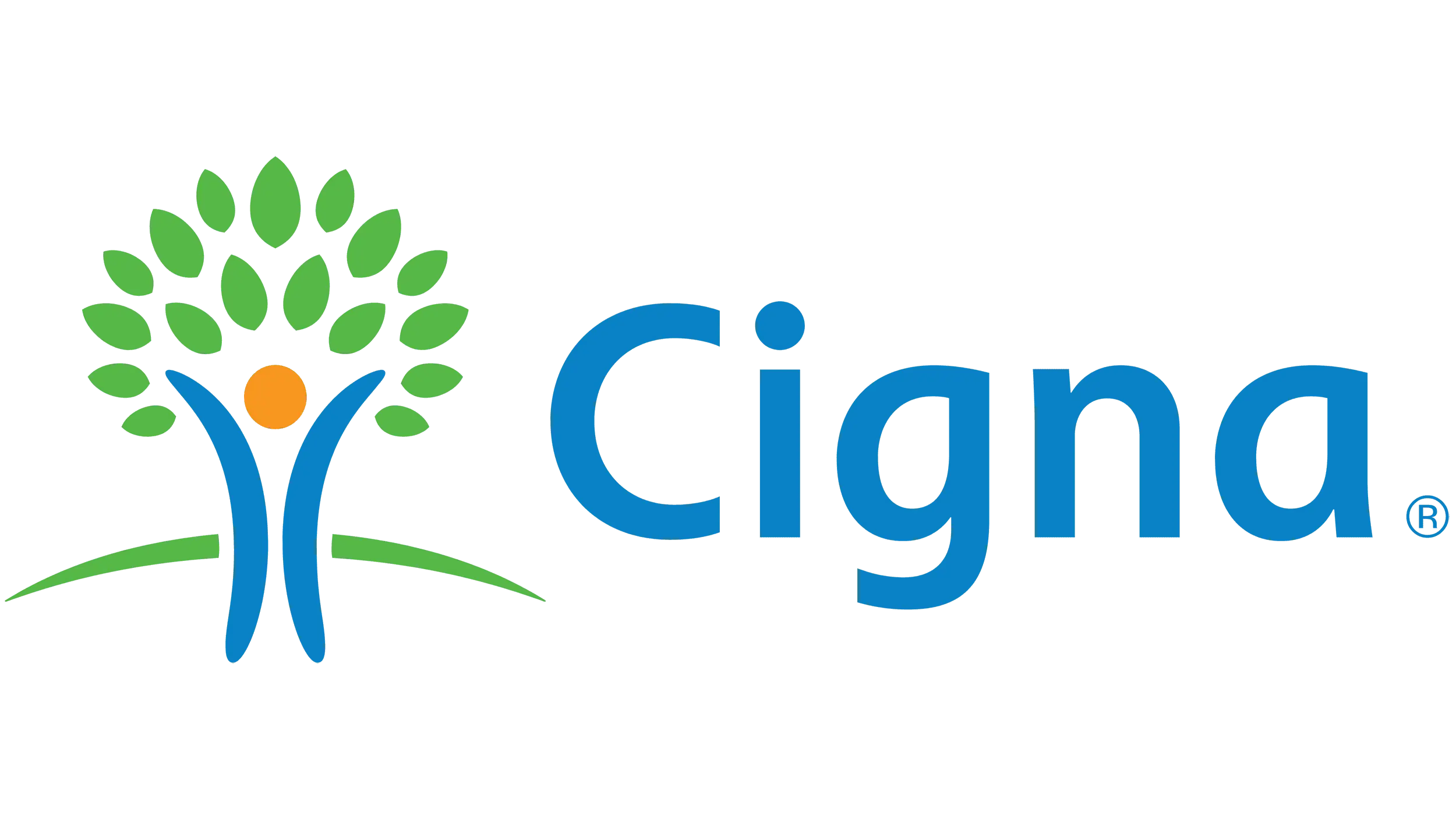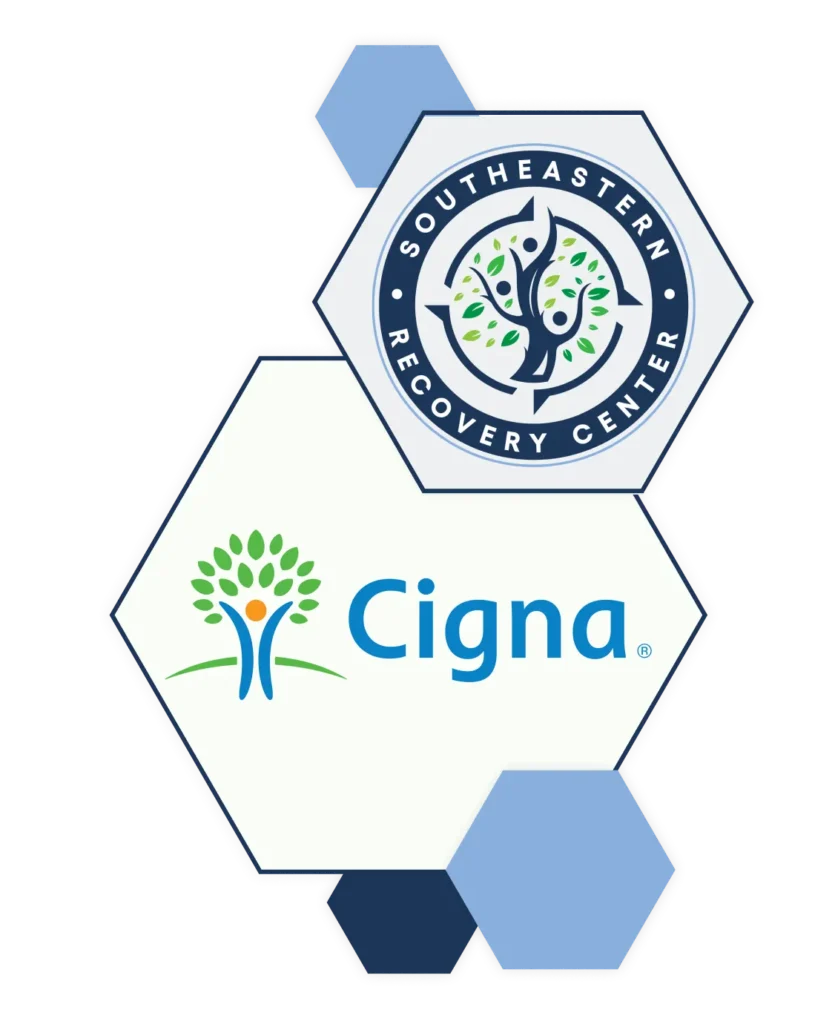Find out if addiction treatment in North Carolina is covered by your Cigna Health Insurance Policy – or verify your insurance coverage with Southeastern Recovery Center now.

In North Carolina, residents dealing with mental illness are 7 times more likely to be forced out of network when seeking treatment for mental health over primary health care – translating to higher costs and higher out of pocket expenses. The National Alliance of Mental Illness (NAMI) reported that more than half of the people with mental illness in the country did not receive any treatment last year.
Mental health disorders are classified by the Diagnostic and Statistical Manual of Mental Disorders (DSM-5), which also classifies substance use disorder as a mental illness. The Affordable Care act makes mental health disorders a priority with insurance – even though many facilities fall into an out of network classification. Learning more about how to navigate your Cigna insurance can help you determine what facilities will cost less and how to get the help you need for sobriety.
Cigna is a global health service company that offers insurance products and related services. They provide a range of health insurance plans for individuals, families, employers, and government entities. These plans often include coverage for medical, dental, vision, pharmacy, behavioral health, and disability services. Cigna also offers wellness programs and other health-related services to promote overall well-being. They operate in multiple countries and serve millions of customers worldwide.
Here’s a brief timeline outlining key events in the history of Cigna as a company and its evolution as a health insurance provider:
Cigna is formed through the merger of INA Corporation and Connecticut General Corporation.
Cigna expands its presence in the health insurance market through acquisitions and mergers, consolidating its position as a major player in the industry.
Cigna acquires Healthcare Compare, a managed care organization, further solidifying its presence in the healthcare sector.
Cigna continues to grow and diversify its offerings, expanding into international markets and broadening its portfolio of insurance and related services.
Cigna acquires HealthSpring, a provider of Medicare Advantage plans, strengthening its presence in the Medicare market.
Cigna attempts to merge with Anthem, another major health insurance company, but the merger faces regulatory challenges and is ultimately blocked by antitrust concerns.
Cigna successfully acquires Express Scripts, one of the largest pharmacy benefit management companies in the United States, further expanding its capabilities in the healthcare industry.
Cigna launches Evernorth, a new brand for its health services portfolio, including pharmacy benefit management, specialty pharmacy, and other healthcare services.
Cigna continues to operate as a leading global health service company, providing a wide range of insurance products, healthcare services, and wellness programs to individuals, employers, and government entities worldwide.
Throughout its history, Cigna has adapted to changes in the healthcare landscape, expanded its offerings, and sought to provide innovative solutions to meet the evolving needs of its customers.
Cigna offers several health insurance plans in North Carolina, catering to different needs and preferences. These plans may include:
When reviewing your Cigna insurance coverage, it’s essential to understand various terms to make informed decisions and effectively utilize your benefits. Here are some key terms to know:

Premium: The amount you pay for your insurance coverage, typically on a monthly basis.
Deductible: The amount you must pay out of pocket for covered services before your insurance plan begins to pay.
Copayment (Copay): A fixed amount you pay for certain covered services at the time of service, often for things like doctor visits or prescription medications.
Coinsurance: The percentage of costs for covered services that you are responsible for paying after meeting your deductible.
Out-of-Pocket Maximum (OOPM): The maximum amount you have to pay for covered services in a plan year. Once you reach this limit, your insurance plan typically covers 100% of covered services for the remainder of the plan year.
Network: The group of doctors, hospitals, and other healthcare providers that have agreed to provide services to members of a specific insurance plan at negotiated rates.
In-Network: Healthcare providers, facilities, or pharmacies that have contracted with your insurance company to provide services at a discounted rate to members of your plan.
Out-of-Network: Healthcare providers, facilities, or pharmacies that do not have a contract with your insurance company. Services obtained from out-of-network providers may result in higher out-of-pocket costs or may not be covered at all, depending on your plan.
Preauthorization/Prior Authorization: Approval required from your insurance company before certain services or medications are covered. Failure to obtain preauthorization for covered services may result in reduced or denied coverage.
Formulary: A list of prescription drugs covered by your insurance plan. Drugs may be categorized into tiers, with different cost-sharing requirements for each tier.
Exclusions: Services or treatments that are not covered by your insurance plan. It’s essential to review your plan’s exclusions to understand what services may not be covered.
Coverage Period: The period for which your insurance coverage is effective, typically a calendar year or plan year.

As a trusted insurance provider in healthcare (and mental health), Cigna serves millions of subscribers across the country each year – but it doesn’t mean that navigating the fine print has gotten any easier. When looking for addiction treatment in North Carolina, the last thing you need to worry about is the fine print of your Cigna insurance policy, which is why Southeaster Recovery Center is here to help.
Our staff is trained in handling Cigna insurance coverage questions and you can even verify your Cigna benefits online to determine what your potential out of pocket costs will be for treatment. We believe in making the process of getting addiction treatment easy and transparent – that way you can receive the treatment you need without surprise bills at the end of your program. If you are ready to get started, call Southeastern Recovery Center today.
